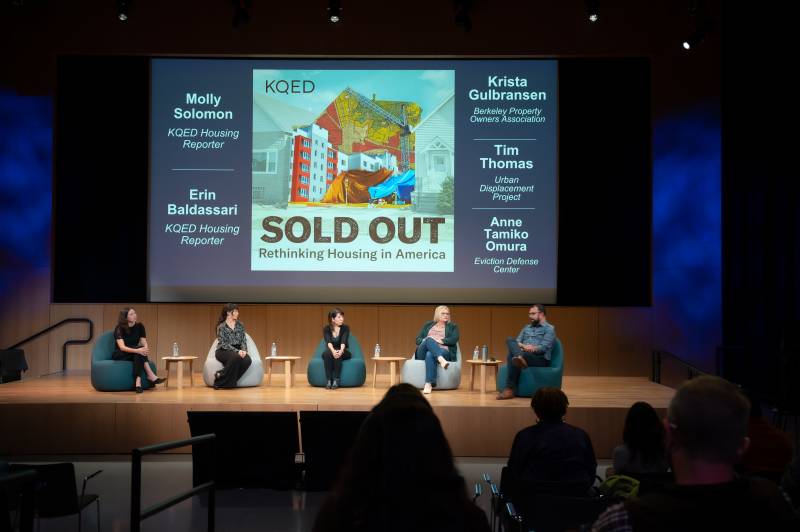The coronavirus pandemic brought millions of people to the edge of losing their housing. When the economy ground to a halt, it became very clear that many people who lost their jobs wouldn’t be able to pay rent, and would face eviction.
The pandemic also sparked a national conversation about the connection between housing and health. Without a safe place to live, and the ability to shelter-in-place, many people would become more vulnerable to getting sick.
The response was unprecedented: the federal government announced an eviction moratorium. Many states like California and local governments here in the Bay Area went even further and passed stronger eviction protections. Still some people were left out, and as those protections expire and the effects of the pandemic linger on, many more could face eviction again.
For a second season of SOLD OUT: Rethinking Housing in America, we’re investigating the system of evictions. Evictions are in no way new; they impact 3 million people a year. And as pandemic-related protections have expired, a growing number of tenants, advocates, and political leaders are questioning the system of evictions and searching for ways to overhaul it and keep people housed.
